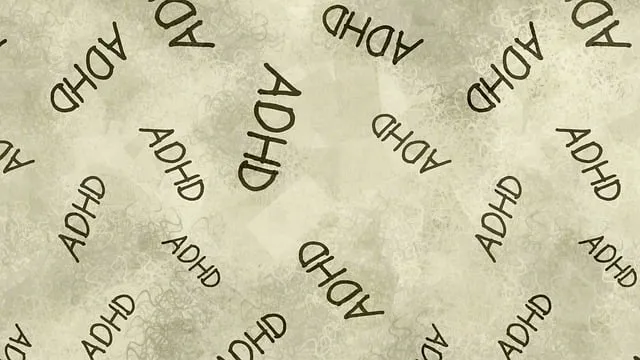The Westminster Kaiser Permanente mental health access center innovates care through group facilitation, creating safe spaces for open dialogue and personal growth. Skilled facilitators use empathy, mindfulness, and self-esteem exercises to build trust and understanding among diverse members, transforming mental wellness through a supportive community model. Effective communication, cultural sensitivity, and confidentiality techniques enhance engagement, ensuring all voices contribute to positive mental health outcomes.
“Explore effective group facilitation techniques within mental wellness care, drawing from the innovative practices at Westminster Kaiser Permanente, a renowned mental health access center. This article delves into strategies that foster supportive environments, enhance communication, and build trust among participants.
From understanding the fundamentals of group facilitation to creating ‘safe spaces’ for vulnerable conversations, we provide insights into fostering meaningful connections. Discover how these techniques, proven successful at Westminster Kaiser Permanente, can revolutionize mental health support groups.”
- Understanding Group Facilitation in Mental Health Care
- Westminster Kaiser Permanente: A Center for Access and Support
- Building Trust and Connection in Support Groups
- Effective Communication Strategies for Facilitators
- Fostering Safe Spaces for Mental Wellness Conversations
Understanding Group Facilitation in Mental Health Care

Group facilitation plays a pivotal role in enhancing mental wellness, offering a supportive environment where individuals can connect, heal, and grow together. This collaborative approach to care is increasingly recognized as a powerful tool within mental health services, particularly at centers like the Westminster Kaiser Permanente Mental Health Access Center. Here, skilled facilitators guide groups focused on various aspects of mental well-being.
Effective group facilitation involves creating a safe and non-judgmental space where empathy building strategies encourage open dialogue. By fostering trust and understanding, facilitators enable members to share their experiences, offering a unique form of support that extends beyond individual therapy. Additionally, incorporating mindfulness meditation techniques and self-esteem improvement exercises allows for profound personal growth within the group dynamic, ultimately enhancing overall mental wellness.
Westminster Kaiser Permanente: A Center for Access and Support

Westminster Kaiser Permanente stands as a beacon of hope and support for those seeking mental wellness. This center is specifically designed to offer comprehensive access to mental health services, catering to diverse needs within a nurturing environment. Facilitators here employ innovative techniques, aligning with Mind Over Matter Principles, to empower individuals in managing their moods effectively. Through engaging discussions and interactive activities, they guide participants towards improving emotional resilience and boosting self-confidence.
The center’s approach recognizes the importance of tailored support, ensuring each individual receives the care they need. Whether focusing on stress management, anxiety reduction, or building coping mechanisms, the team at Westminster Kaiser Permanente fosters a safe space for exploration and growth. By combining evidence-based practices with compassionate facilitation, they help clients navigate challenges, ultimately enhancing their overall mental wellness.
Building Trust and Connection in Support Groups

Building trust and connection is paramount in facilitating supportive group environments, as seen in initiatives like those offered by the Westminster Kaiser Permanente Mental Health Access Center. This foundation is crucial for fostering open communication among participants, enabling them to share their experiences and emotions safely. Through active listening, empathy, and non-judgmental attitudes, facilitators create a welcoming atmosphere that encourages vulnerability, a key element in the emotional healing processes.
Group members begin to develop coping skills and build confidence as they interact with peers who may have faced similar challenges. This sense of community allows individuals to learn from one another, providing valuable insights into managing stress, anxiety, or depression. The support group setting facilitates both individual growth and collective resilience, ultimately enhancing the overall mental wellness of all participants.
Effective Communication Strategies for Facilitators

Effective communication is a cornerstone for facilitators leading mental wellness groups at centers like the Westminster Kaiser Permanente Mental Health Access Center. It involves active listening, ensuring every participant feels heard and understood, and using inclusive language that respects diverse backgrounds and experiences. Facilitators should be attuned to non-verbal cues, fostering an environment where individuals feel safe to express their thoughts openly.
Cultural sensitivity in mental healthcare practice is paramount. Group facilitators must be aware of the unique perspectives and beliefs within the community they serve. Adapting communication styles to accommodate different cultural norms can enhance participation and engagement, making Mental Illness Stigma Reduction Efforts more effective. A well-facilitated group session encourages honest dialogue, builds trust, and promotes a sense of belonging, ultimately contributing to positive mental health outcomes.
Fostering Safe Spaces for Mental Wellness Conversations

Creating a safe and supportive environment is paramount when facilitating mental wellness discussions within groups. This concept forms the cornerstone of successful initiatives like the Westminster Kaiser Permanente Mental Health Access Center’s Community Outreach Program. By prioritizing safety, individuals feel more comfortable sharing their experiences and insights, fostering an atmosphere that encourages open dialogue.
Techniques to enhance this safety include ensuring confidentiality, promoting active listening among participants, and facilitating a non-judgmental environment. Healthcare Provider Cultural Competency Training can play a vital role here, equipping facilitators with the skills to navigate diverse perspectives. Additionally, incorporating Self-Awareness Exercises at the beginning of sessions allows participants to set boundaries and expectations, further solidifying the sense of security within the group setting.
Group facilitation plays a pivotal role in enhancing mental wellness, as evidenced by initiatives like Westminster Kaiser Permanente’s Center for Access and Support. By fostering trust, connection, and safe spaces, facilitators empower individuals to share openly and support one another. Utilizing effective communication strategies is key to navigating complex conversations and ensuring every voice is heard. This holistic approach, inspired by successful models like those at Westminster Kaiser Permanente, holds immense potential to revolutionize mental health care through supportive group environments.






